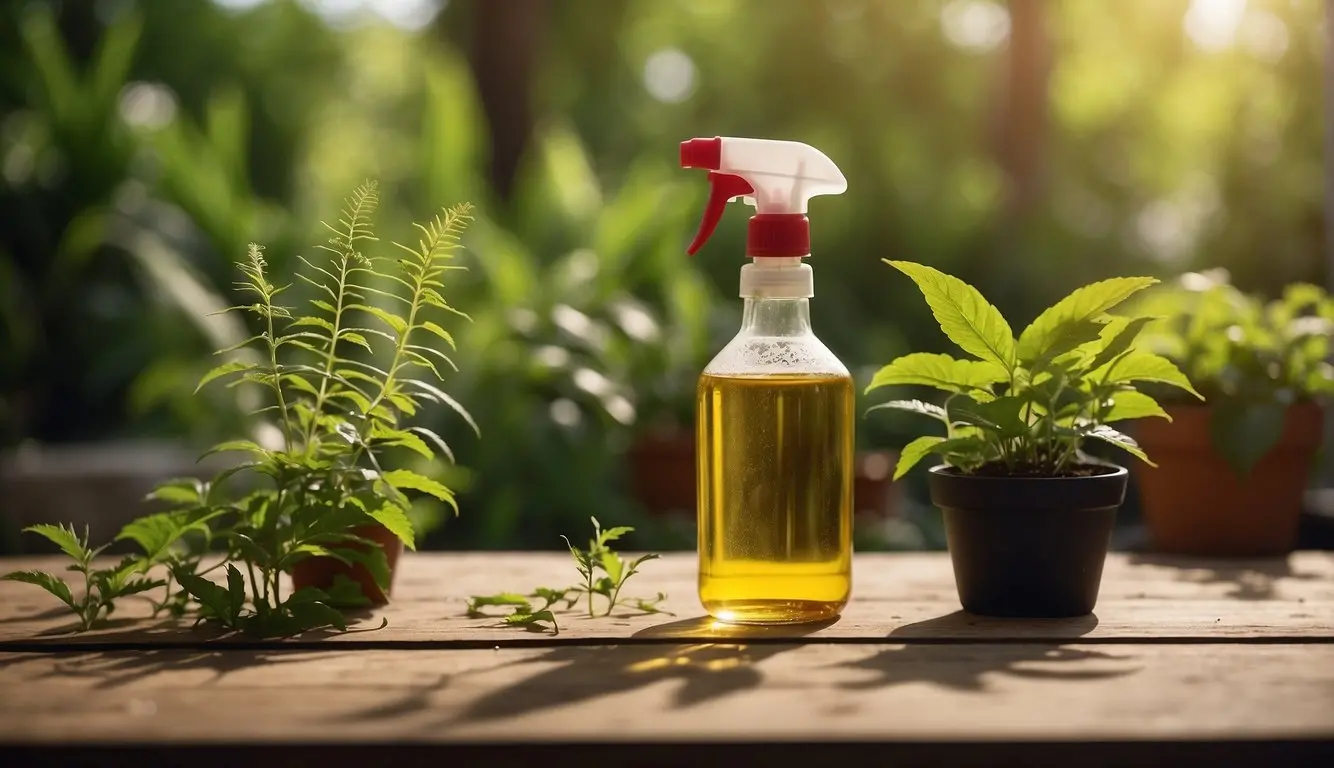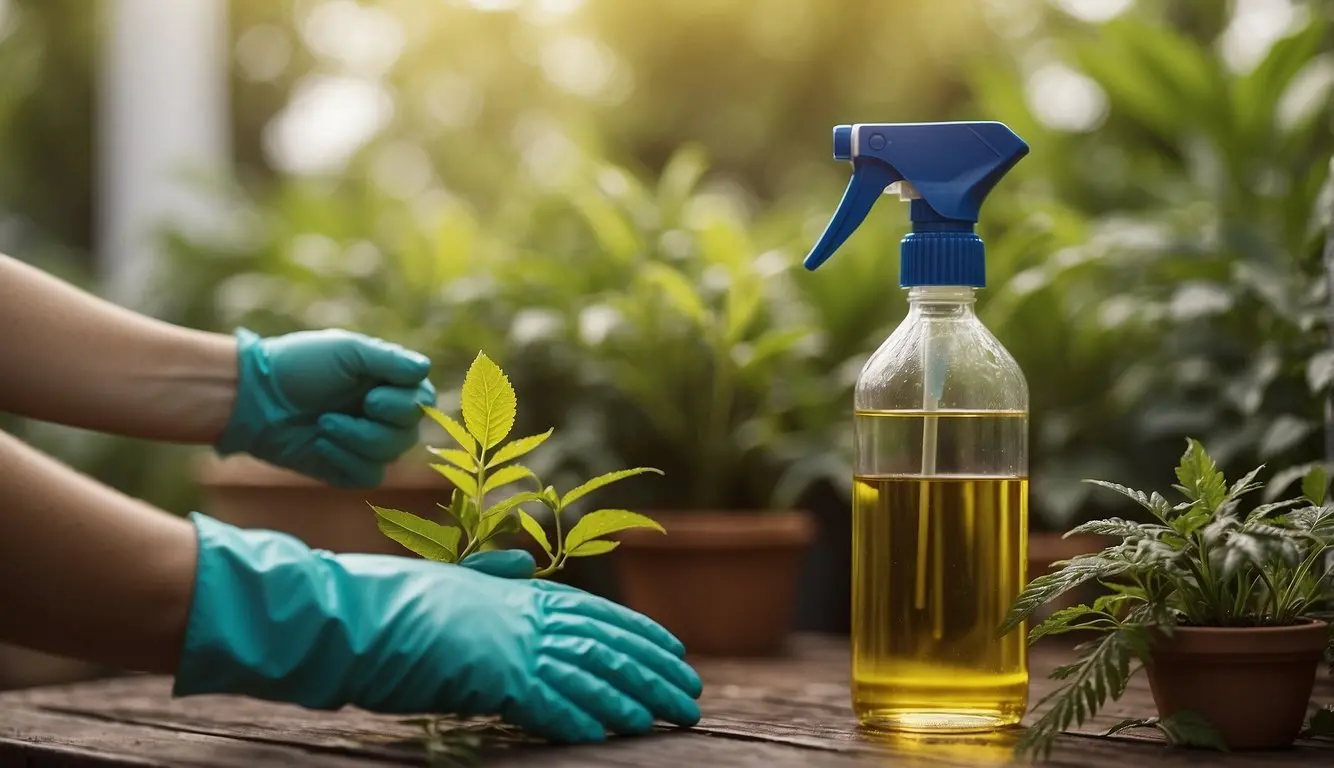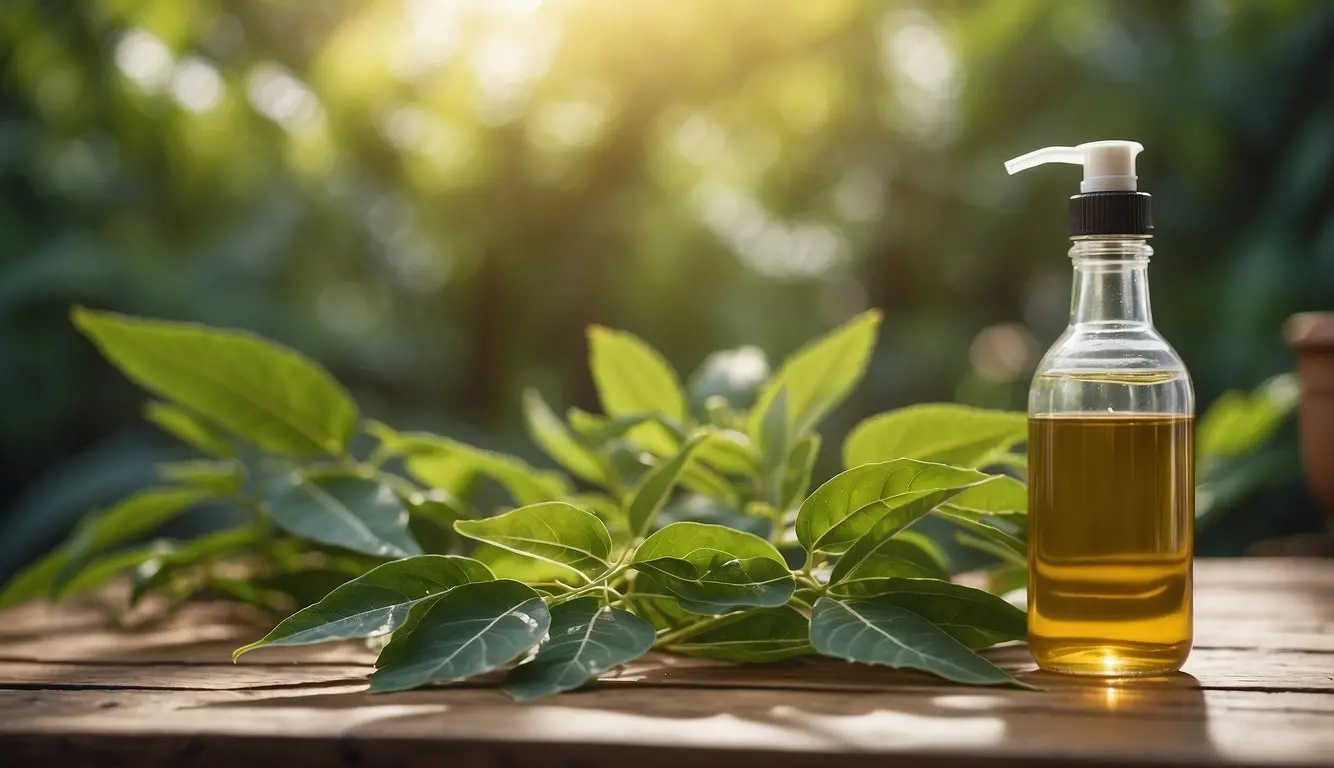Are you tired of using harsh chemicals to control pests in your garden? Have you considered using neem oil recipes as an organic alternative? Neem oil is a natural pesticide that has been used for centuries to control pests and diseases. It is safe, non-toxic, and easy to make at home.

Understanding neem oil and its benefits is the first step to creating your own neem oil spray. Neem oil is extracted from the seeds of the neem tree, which is native to India. It contains compounds that repel and kill pests, including aphids, mealybugs, and spider mites. Neem oil also has antifungal and antibacterial properties, making it effective against a variety of plant diseases.
Key Takeaways:
- Neem oil is a safe and non-toxic alternative to chemical pesticides.
- You can easily make your own neem oil spray at home.
- Neem oil is effective against a variety of pests and diseases, including aphids, mealybugs, and spider mites.
Table of Contents
Understanding Neem Oil Recipes and Its Benefits
If you’re looking for a safe and non-toxic way to control pests in your garden, neem oil might be the solution you need. Neem oil is a natural pesticide that comes from the seeds of the neem tree, which is native to India and other parts of Southeast Asia.
The Power of Neem
One of the main active ingredients in neem oil is azadirachtin, which is a natural insecticide that can kill and repel a wide range of pests. Azadirachtin works by disrupting the feeding and mating behavior of insects, which can help to reduce their populations over time.
In addition to azadirachtin, neem oil also contains other compounds that can help to control pests and diseases. For example, neem oil has antifungal properties that can help to prevent and treat fungal infections in plants.
Neem Oil as an Organic Solution
One of the biggest advantages of neem oil is that it’s a completely organic solution for pest control. Unlike synthetic pesticides, neem oil won’t harm beneficial insects like bees and ladybugs, which can help to keep your garden healthy and thriving.
In addition, neem oil is safe to use around children and pets, so you don’t have to worry about exposing your family to harmful chemicals. And because neem oil breaks down quickly in the environment, it won’t leave behind harmful residues that can contaminate soil and water.
Overall, neem oil is a powerful and versatile tool for controlling pests and diseases in your garden. Whether you’re dealing with aphids, mites, or fungal infections, neem oil can help keep your plants healthy and thriving without putting your family or the environment at risk.
Creating Your Own Neem Oil Spray
If you’re looking for an effective way to control pests in your garden or on your houseplants, neem oil spray is a great option. Making your own neem oil spray is easy and affordable, and it’s a natural alternative to chemical pesticides.
Basic Neem Oil Spray Recipe
To make a basic neem oil spray, you’ll need neem oil, liquid soap, and water. You can use any liquid soap you have on hand, but make sure it’s mild and doesn’t contain any harsh chemicals. Here’s how to make a basic neem oil spray:
- Fill a spray bottle with warm water.
- Add 1 teaspoon of neem oil to the water.
- Add 1/3 teaspoon of liquid soap to the mixture.
- Shake the bottle well to emulsify the ingredients.
Your basic neem oil spray is now ready to use. Be sure to shake the bottle well before each use to ensure the ingredients are well mixed.
Enhancing the Mixture
If you want to enhance the effectiveness of your neem oil spray, you can add an emulsifier to the mixture. An emulsifier helps to distribute the neem oil evenly throughout the water, which makes the spray more effective.
One common emulsifier is lecithin, which is a natural substance derived from soybeans. To use lecithin as an emulsifier, follow these steps:
- Fill a spray bottle with warm water.
- Add 1 teaspoon of neem oil to the water.
- Add 1/3 teaspoon of liquid soap to the mixture.
- Add 1/2 teaspoon of lecithin to the mixture.
- Shake the bottle well to emulsify the ingredients.
Your enhanced neem oil spray is now ready to use. Again, be sure to shake the bottle well before each use to ensure the ingredients are well mixed.
By making your own neem oil spray, you can control pests in your garden or on your houseplants without resorting to chemical pesticides. And with just a few simple ingredients, you can create a natural and effective pest control solution.
Application Techniques for Maximum Effectiveness
When it comes to using neem oil for pest control, application is key. Here are some tips on how to apply neem oil for maximum effectiveness.
Best Times for Application
For best results, apply neem oil in the morning or evening when the temperature is cooler. This will help prevent the neem oil from evaporating too quickly. Avoid applying neem oil during the hottest part of the day or when it’s raining, as this can also reduce its effectiveness.
Targeted Application Methods
There are several ways to apply neem oil, depending on what you’re trying to protect. For example, if you’re trying to protect leaves from pests, you can mix neem oil with water and spray it onto the leaves using a spray bottle. Be sure to cover both the tops and bottoms of the leaves.
If you’re trying to protect the soil from pests, you can mix neem oil concentrate with water and drench the soil around the plant. This will help prevent pests from feeding on the roots of the plant.
For targeted application on specific parts of the plant, you can mix neem oil with water and apply it directly to the affected area using a cotton swab or brush.
No matter what application method you choose, be sure to follow the instructions on the neem oil product label. Using too much neem oil can harm your plants, so it’s important to use the correct amount.
In conclusion, neem oil is an effective and natural way to control pests in your garden. By following these application techniques, you can ensure maximum effectiveness and protect your plants from pests.
Common Pests and Diseases Controlled by Neem Oil
If you’re looking for a natural and organic way to keep pests and diseases at bay, neem oil is a great option. It is a versatile and effective solution that can help you get rid of a wide range of common pests and diseases that affect your plants.
Insects and Mites
Neem oil is a powerful insecticide and repellent that can help you get rid of a variety of insects and mites that attack your plants. Some of the most common pests that can be controlled by neem oil include ants, aphids, whiteflies, thrips, spider mites, and mealybugs. Neem oil works by disrupting the life cycle of these pests, preventing them from feeding, laying eggs, and reproducing.
To use neem oil as an insecticide, you can mix it with water and a mild detergent, such as liquid soap. Spray the mixture on your plants, making sure to cover the leaves, stems, and other parts of the plant that are affected by pests.
Fungal Diseases and Other Plant Ailments
In addition to controlling insects and mites, neem oil can also help you prevent and treat a variety of fungal diseases and other plant ailments. Some of the most common diseases that can be controlled by neem oil include powdery mildew, rust, and other fungal diseases.
To use neem oil as a fungicide, you can mix it with water and a mild detergent, such as liquid soap. Spray the mixture on your plants, making sure to cover the leaves, stems, and other parts of the plant that are affected by the disease.
Overall, neem oil is a great natural solution for controlling pests and diseases in your garden. It is safe, effective, and easy to use, making it a popular choice for many gardeners.
Safety and Precautions When Using Neem Oil

Using neem oil for pest control is a safe and non-toxic alternative to chemical pesticides. However, it is important to take proper precautions to protect beneficial species and ensure safe handling and storage.
Protecting Beneficial Species
Neem oil can harm beneficial insects, such as bees and birds if it is not used properly. To avoid harming these species, it is important to only apply neem oil when pests are present and to avoid spraying during the hottest part of the day when bees are most active. You can also protect beneficial insects by only spraying the affected areas rather than the entire plant.
Proper Storage and Handling
Neem oil should be stored in a cool, dry place away from direct sunlight. It is important to keep it out of reach of children and pets. When handling neem oil, it is recommended to wear protective clothing, such as gloves and goggles, to avoid skin and eye irritation. It is also important to read and follow the label instructions carefully to ensure safe handling and use.
To summarize, neem oil is a safe and effective alternative to chemical pesticides for pest control. However, it is important to take proper precautions to protect beneficial species and ensure safe handling and storage. By following these guidelines, you can safely and effectively control pests in your garden without harming the environment.
Conclusion

Congratulations! You now have the knowledge to make your own DIY neem oil recipes for pest control. By using neem oil, you can keep your garden and plants healthy without resorting to harmful chemicals.
Remember, neem oil is a natural pesticide that is effective against a wide range of pests and diseases. It can also be used as a preventive measure to keep your plants healthy and strong.
When making your DIY neem oil spray, always follow the instructions carefully. Use the right amount of neem oil and soap, and mix the ingredients thoroughly.
Also, keep in mind that neem oil is not a magic solution. It may take some time to see the results, and you may need to apply the spray several times to get rid of the pests completely.
In addition to neem oil, there are other natural remedies that you can use to control pests and diseases in your garden. For example, you can use garlic, onion, and chili pepper sprays to repel insects, or use compost tea to fertilize your plants.
By using natural remedies, you can create a healthy and sustainable garden that is free from harmful chemicals. So go ahead and experiment with different DIY neem oil recipes, and enjoy the benefits of a healthy and thriving garden!
- Best Brush Cutter: Top 5 Models for Lawn Maintenance in 2024 - January 10, 2024
- Protecting Your Garden from Rodent Damage: Tips and Tricks - December 14, 2023
- Small Space Gardening: Transform Your Garden with Raised Beds - December 10, 2023
